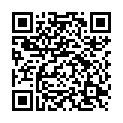|
|
|
| Module code: MAM.2.1.1.9 |
|
|
2PA (2 hours per week) |
|
3 |
| Semester: 8 |
| Mandatory course: no |
Language of instruction:
English |
Assessment:
Project work
[updated 01.10.2020]
|
MTM.DOE Mechatronics, Master, ASPO 01.04.2020
, optional course
MAM.2.1.1.9 (P231-0110) Engineering and Management, Master, ASPO 01.10.2013
, semester 8, optional course
MST.DOE (P231-0110) Mechatronics and Sensor Technology, Master, ASPO 01.04.2016
, optional course
MST.DOE (P231-0110) Mechatronics and Sensor Technology, Master, ASPO 01.10.2011
, semester 8, optional course
Suitable for exchange students (learning agreement)
|
30 class hours (= 22.5 clock hours) over a 15-week period.
The total student study time is 90 hours (equivalent to 3 ECTS credits).
There are therefore 67.5 hours available for class preparation and follow-up work and exam preparation.
|
Recommended prerequisites (modules):
None.
|
Recommended as prerequisite for:
|
Module coordinator:
Prof. Dr. Martin Löffler-Mang |
Lecturer:
Ruud Sniekers
[updated 09.08.2011]
|
Learning outcomes:
After successfully completing this course, students will be able to:
_ articulate or explain the assumptions DOE is based on
_ set up a designed experiment
_ evaluate an experiment design
_ analyze the results of a designed experiment
_ participate in a discussion about experiment design
[updated 01.10.2020]
|
Module content:
_ Measurement accuracy
_ Gage repeatability and reproducibility
_ Sum of squares and degrees of freedom
_ Analysis of varianc
[updated 01.10.2020]
|
Recommended or required reading:
[still undocumented]
|


